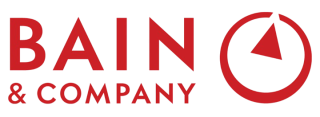Hi everyone, going into Bain finals here and preparing for the fit portion of the interviews - can anyone who has gone through this advise on what typically Bain will look for in fit questions, and how they might differ from McKinsey's PEI / fit questions? Cheers.
Bain Fit Questions


Hi,
Bain consultants will be less concerned about your stories and will not have strict guidelines. They will mostly check your background and motivation
Interviewer usually asks 3 sets of questions:
- “Tell me about yourself” or “walk me through your resume”- this is how Consultants usually begin the interview. It's an opportunity for them to learn about you and to pick some interesting facts.
- “Why consulting?”, “Why Bain” questions are used to assess your motivation to be a consultant in general and to work in that particular firm.
- Some random questions - eg hobbies
- Your questions to the interviewer
“Why consulting?”, “Why McKinsey” or “Why BCG” questions are used to assess your motivation to be a consultant in general and to work in that particular firm. They will check how you have done your homework and what you’ve learned about them. They also want to make sure that you have a clear intention to work in consulting.
- The answers to these questions are supposed to be short and take no more than 30 seconds each.
- For each question, you should provide three bullets points with different reasons.
- Make sure that you guide the interviewer through your reasoning. Words like “The first reason”, “Moreover”, “Finally” will help you.
Why consulting
When answering “Why consulting” questions, provide three reasons why you want to pursue a career in a consulting firm. A general rule is to find the reasons that are important for you and logically fit everything you have done before (e.g. you want to grow further in financial services and get exposure to these clients). You can always use some personal rationale like your experience of working with consultants on a client side.
Why our company
Answer “Why our company” question fits exactly the same logic. You can start with general facts about the local office. If you have an interest in a particular industry or client this may also be a great reason. If you have friends working in that company mention what you’ve learned from their experience.
Your questions to the interviewer
The main objective is to have a good conversation and highlight your intellectual capacity and curiosity. Thus:
It is ok to ask:
- Questions that cause positive emotions and highlight consulting pros (e.g. Mck people)
- Questions on the topics you are excited about (e.g. data science)
- Non-business questions (e.g. team retreats)
It's not ok to ask:
- Questions that can cause negative emotions (e.g. work hours)
- The information you should learn before the interview (e.g. typical career path)
- Questions that may show that you are unfamiliar with consulting work (Like are you specialized in strategy or operations?)
Be prepared and good luck!

Hi Anonymous,
in general if you are prepared for McKinsey PEI you will be ok for all the other companies, as McKinsey behavioural interview is the most structured and in-depth fit interview type.
Adding to Vlad answer, I would also consider preparing on the following:
- One leadership/teamwork story – how you lead a team: "Give me an example when you led a team"
- One impact story – how you influenced someone: "Tell me about a time when you had to convince someone not agreeing with you"
- One drive story – how you achieved a major goal: "What has been your major achievement so far"
These questions appear less frequently at Bain compared to McKinsey but they are not uncommon, thus I would recommend to review them as well. If you prepared for McKinsey PEI, you should have them already prepared.
Ideally you want to have more than one story for each area. Two would be good, three even better. That’s because:
- Different interviewers may ask the same question
- The same interviewer may ask twice the question if he/she feels you have “learned by art” one experience or just to challenge you
- You can adapt better to different variation of a question
For a deeper analysis of the main differences between the previous areas you can take a look to the following link:
https://www.preplounge.com/en/consulting-forum/mckinsey-pei-difference-drive-and-personal-impact-918#a1780
Best,
Francesco

Hello!
On top of the insights already shared in the post, next week will be pusblished in PrepLounge´s Shop material related.
In concrete, the "Integrated FIT guide for MBB". It provides an end-to-end preparation for all three MBB interviews, tackling each firms particularities and combining key concepts review and a hands-on methodology. Following the book, the candidate will prepare his/her stories by practicing with over 50 real questions and leveraging special frameworks and worksheets that guide step-by-step, developed by the author and her experience as a Master in Management professor and coach. Finally, as further guidance, the guide encompasses over 20 examples from real candidates.
Hope you find it useful!












